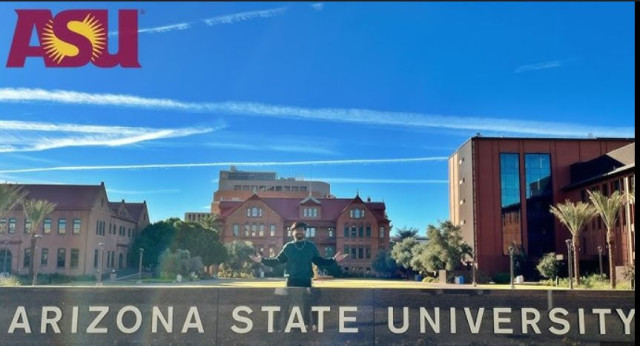Arizona State University (ASU) recently came under scrutiny on one of the world’s most influential podcasting platforms, The Joe Rogan Experience.
In a December interview, Joe Rogan hosted Mike Benz, a former State Department official and the current executive director of the Foundation for Freedom Online (FFO). The FFO advocates for protecting Americans from internet censorship and claims to achieve its mission through educational reports, legal support, and public policy analysis.
Benz singled out ASU as a key player in what he described as the government’s efforts to suppress domestic dissent. He specifically criticised ASU’s Center on Narrative, Disinformation, and Strategic Influence (NDSI), part of the university’s Global Security Initiative (GSI), calling it a “multimillion-dollar censorship centre.”
Benz alleged that ASU has received significant funding from federal agencies, including:
- $1.6 million from the Pentagon for alleged censorship projects.
- $300,000 from the State Department, and
- Nearly $500,000 from other intelligence-related grants.
He highlighted two significant initiatives under NDSI:
- Semantic Information Defender (SID): A project funded over $1 million by the Defence Department and DARPA to assess AI risks, including tools like ChatGPT.
- Semantic Forensics (SemaFor): A DARPA-funded effort to detect and analyse disinformation perceived as national security threats.
Federal spending data supports some of these claims, showing ASU received $1.2 million for social media research to combat disinformation, alongside smaller grants for related projects, including one examining racial bias on platforms like TikTok.
According to Benz, the NDSI's language is deliberately ambiguous. He argued that the program frames any challenges to public trust in media, government, or science as threats to democracy.
Benz also pointed to ASU President Michael Crow’s chairmanship of In-Q-Tel, the CIA’s venture capital arm, suggesting a more profound intelligence community link. “This is not just a university program,” Benz claimed. “It’s an intelligence operation.”
Per Benz, 70% of GSI’s funding comes from the Defence Department, Homeland Security, and other intelligence entities. ASU’s GSI has reported over $210 million in research expenditures since 2015.
ASU has yet to respond to these allegations formally, but the debate raises broader questions about the intersection of academia, national security, and public trust.
The interview raises critical questions about the role of academic institutions in shaping national security narratives and their impact on public trust.
For more about the Foundation for Freedom Online, visit www.foundationforfreedomonline.com.




















